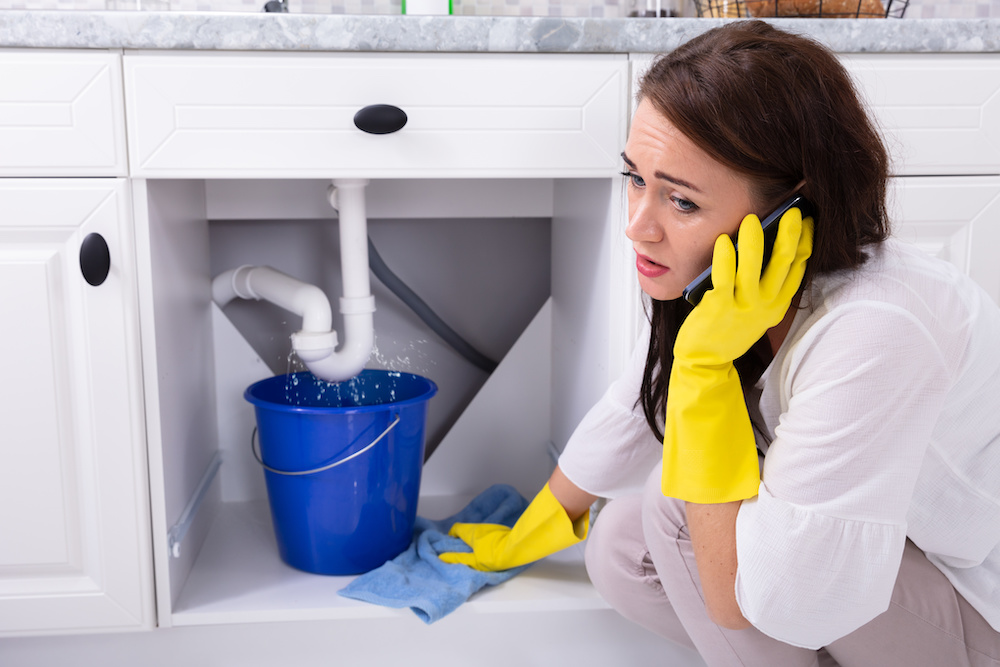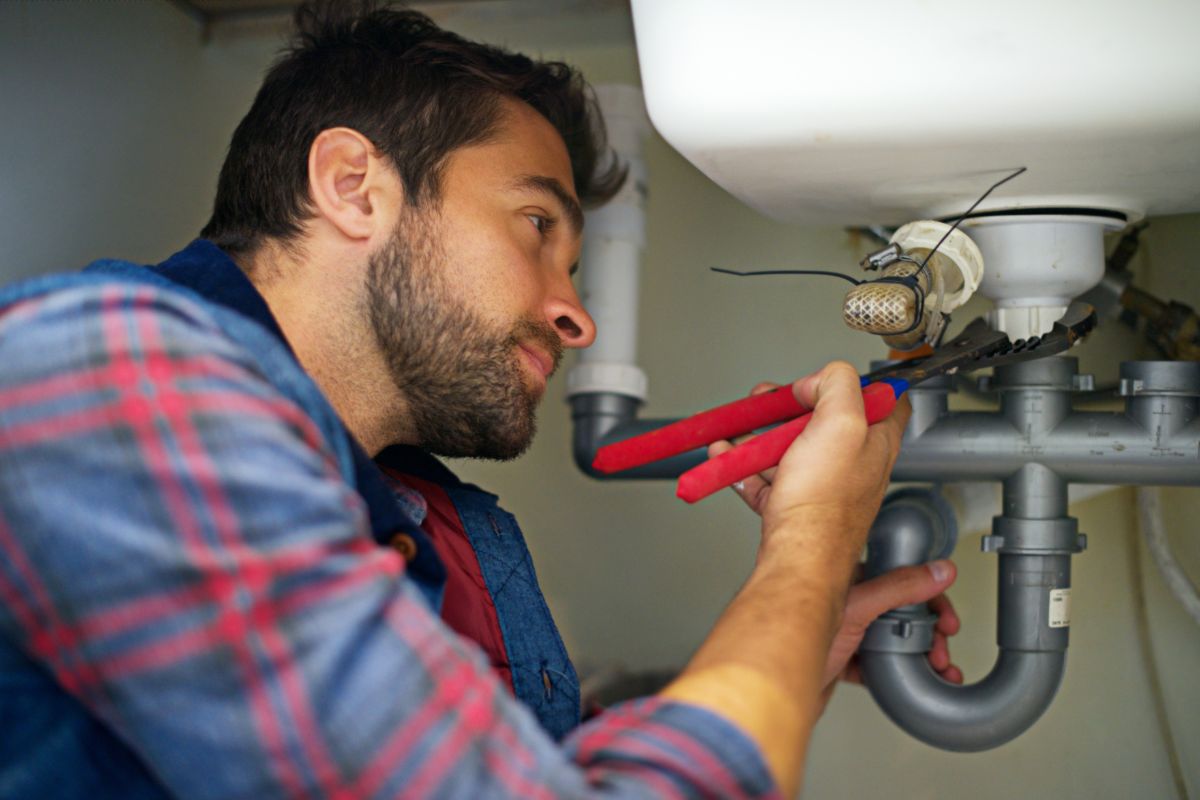Quick Solutions for Plumbing Emergencies: Essential Steps to Take Until Support Arrives
Book A ServiceJust how do you really feel on the subject of What to Do While Waiting for an Emergency Plumber?

Plumbing emergencies can strike at any moment, causing stress and possible damage to your home. Whether it's a burst pipeline, a clogged up drain, or a dripping tap, understanding exactly how to handle the situation until a professional plumber gets here can conserve you from more complications. This write-up supplies vital emergency pipes ideas to help you minimize damages and restore control throughout a pipes crisis.
Shut off the Water System
The primary step in any type of plumbing emergency situation is to turn off the supply of water. For localized concerns, such as a leaking faucet or commode, switch off the valve near the fixture. When it comes to a significant leak or ruptured pipeline, find your home's main water shut-off shutoff and transform it off promptly. Understanding the location of these shutoffs beforehand can conserve beneficial time during an emergency.
Shut Off Your Hot Water Heater
In particular emergencies, such as a ruptured pipe, it's a good idea to shut off your hot water heater. This avoids getting too hot or damages to the device when water quits streaming. Shut off the power supply to the water heater (electrical or gas) and allow it cool off to avoid potential dangers.
Briefly Quit a Ruptured Pipeline
A ruptured pipeline can cause considerable water damage in mins. To minimize the problem:
Call an expert plumbing professional immediately to deal with the problem permanently.
Have an Emergency Situation Pipes Kit
Prepare a fundamental pipes emergency package to deal with minor problems properly. Your set should consist of:
Having these tools handy can make a substantial difference in your capacity to manage emergencies.
Unclog Drains Pipes Securely.
A clogged drain can be an irritating and messy issue. Right here's how to tackle it:.
If these approaches do not work, stay clear of utilizing too much force, as it might worsen the obstruction.
Manage Overflowing Toilets.
An overflowing commode can cause instant chaos. Right here's what you must do:.
Address Tiny Leaks with Temporary Repairs.
Little leakages can promptly become considerable troubles if left uncontrolled. Make use of these temporary repairs till specialist aid arrives:.
While these solutions aren't permanent, they can help lessen water loss and damages.
Take Care Of Frozen Pipes Thoroughly.
In chillier environments, icy pipelines are an usual emergency. If you suspect a frozen pipe:.
Know When to Call an Expert.
While quick fixes can assist briefly, specific plumbing problems require immediate specialist focus. Call a plumbing professional if:.
Without delay getting in touch with a professional makes certain the problem is dealt with correctly and prevents more problems.
Prevent More Damage.
Taking fast action to lessen damages can save you time and money in the long run. Right here's just how:.
Verdict.
Pipes emergencies can be overwhelming, however with the ideal understanding and devices, you can handle the scenario successfully up until help arrives. By turning off the water supply, addressing tiny leakages, and using short-lived solutions, you can lessen damage and keep your home safe. Bear in mind, these pointers are momentary options; always consult a certified plumbing to deal with the origin of the trouble. Preparation and quick reasoning are your best allies in any pipes emergency situation.
8 Helpful Tips for Managing Plumbing Emergencies at Home
If your plumbing system hasn’t failed once, wait for it because almost everyone has a story to tell. Sometimes, it could be simple emergencies such as a leaking pipe, a blocked cistern, or even a big burst pipe. In situations like this, you need to have some handy tips to save you some money and from possible damages.
Take care of minor issues early.
Sometimes, you could have avoided an emergency by taking proactive measures while it was still early. Some major plumbing emergencies can be a result of an ignored minor issue. We recommend that you have items like plumbing tapes and other related items. A plumbing tape can allow you to manage minor leaks before the plumber arrives.
Cut off the water supply.
This tip is essential in almost any type of leakage problem. For problems like minor leakages in the toilet or kitchen, turn off the supply that takes water to the affected pipes. If the leakage is a major pipe, you must shut off the supply valve to the entire building. This will help you avoid flooding your home and neighbors if you share a flat.
Know your plumbing system
Folks typically move into a new apartment without understanding the water supply around the building. This can prove disastrous if a water emergency arises and the plumber is far away. The previous tip will prove useless if you don’t practice this one. More importantly, know where your water shut-off valve is located – you’ll need that knowledge to prevent potential home floods.
Have some common handy tools
There are lots of plumbing emergencies that you can handle without hiring a plumber. That’s why you must keep some tools available always. Some tools that you can use to fix simple plumbing emergencies easily include plumbing tapes, screwdrivers, thread seal tapes, plungers, pliers, tape measures, and rubber gloves.
Insulate your pipes from cold
You’ll save yourself from many plumbing expenses if you protect your water pipes from the cold. This is because of the harmful effects that cold weather can have on your pipes. During winter, your pipes can burst from being overly expected to freezing temperatures. So, make sure insulators are there to keep the pipes working correctly.
Avoid practices that will clog your toilet.
Many people indulge in practices that can damage the plumbing system of the entire building. One of these is when they use their toilet to dispose-off garbage. They flush all kinds of things, such as paper towels, bandages, hairs, female sanitary products, etc., down the toilet. This will block your toilet in the long run, incurring unnecessary expenditures. Dump such waste in the trash instead.
Check your dials regularly.
Sometimes, there could be leakages in your home without noticing them in time. So, constantly monitor your water meter dial. If the dial is reading when there is nobody using water, this is an indicator that there is leaking. Check for leaks immediately. Call a plumber as soon as possible if you can’t find any.
https://www.constructionplacements.com/8-helpful-tips-for-managing-plumbing-emergencies-at-home/

I have been very interested by Expert Tips for Emergency Plumbing Repairs and I hope you liked our blog posting. In case you liked our blog posting please don't forget to pass it around. Thanks for your time. Come back soon.
Website